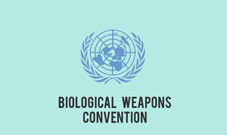
Russia demands admission to the Richard Lugar Laboratory
By Khatia Bzhalava
Thursday, May 28
Lugar Laboratory has once again become the target of Russia’s strict interest. In the statement released by the Ministry of Foreign Affairs of the Russian Federation, they demand admission of Russian specialists to the Richard Lugar Laboratory, as they have mistrust in the operations which they think to be supervised by the USA.
As the statement reads, the Laboratory is used for the interests of the US Department of Defence and in the area of the Center operates American ground department of medical research. The military authority of the US and other structures in connection funded the research conducted in the Laboratory and paid the expenses to assure the security of the center. “Despite our request, the US does not inform us about the dual-purpose activities operated in the Laboratory, the reason for our concern is that we are not aware of what the US does near our border, this is naturally the subject of our interest in the context of national security.”
The statement marks that the activities of the Laboratory bear questions on how faithfully does the US comply with the responsibilities determined by Biological and Toxin Weapons Convention (BTWC). The statement mentions an assumption according to which, on this very unit, researches are being operated on insects as spreaders of especially hazardous biological agents and pathogens of infections.
Russia considers the visit of foreign experts to the Laboratory on November 14-15,2018, as mistaking international society on the actual status of the Lab. As the statement reads, the program did not include a thorough and profound examination of the unit, which would enable objective assessment of the center’s operations.
On May 27th, the Ministry of Foreign Affairs of Georgia responded to Russia’s statement and accused the official Moscow of spreading false information.
“Whilst Georgia was receiving congratulations on independence day from neighboring and partner countries, the Ministry of Foreign Affairs of the Russian Federation, issued a statement of allegations regarding the Richard Lugar Center. Mentioned disinformation is extremely astonishing under the conditions, when the center’s activities are considered as one of the crucial aspects of Georgian government’s success against the novel coronavirus and the center’s work is positively reviewed by the international community,” reads the statement released by the Ministry of Foreign Affairs of Georgia.
The statement clarifies that the Laboratory is a subdivision of the disease control center and is a part of the institution of the healthcare system of Georgia. It is entirely financed by the Georgian government, therefore any research or study is implemented under the coordination of relevant authorities of Georgia. As it is noted, American partners have no function in setting the tasks of the center or have no permission to manage any research independently.
The statement notes that Georgia conscientiously fulfills the International responsibilities imposed according to the Biological and Toxin Weapons Convention. On November 14-15, 2018, Georgia hosted the international exercise, which was organised with the assistance of Germany and aimed to assure the transparency of the Lab. Security and bio experts from almost 20 counties participated in the event and it is notable that Russia was sent an invitation as well, however, Georgia received a stringent rejection from the federation to engage Russian experts in the occasion.` This clearly asserts Russia’s seeming concern in the work of the laboratory, ’
“Regardless, Ministry of Foreign affairs of Russia doubts the conclusion of leading experts in the field and what is more startling, the incorrect accusations from Russia are based on the disinformation from uncertain ’experts’, which is actively promoted by solely Russian media outlets and that evidently highlights the incompetence and aggressiveness of the argumentations.”
As the statement notes, even though the country has no legal bilateral duty to Russia, Georgia is and always was in readiness to host competent Russian experts, who own admission on the facilities of such Laboratories, but the visits can only be carried out according to the mechanism framed by Biological and Toxin Weapons Convention(BTWC).
Georgian side calls on the international community, especially the members of BTWC to review Russia’s aggressive statements against Georgia, to condemn the apparent existence of disinformation and not to let the successful working of an exemplary institution in the region be under suspicion.
Note that the US Embassy in Georgia issued the statement on the ‘Disinformation Campaign Against the Lugar Center’ yesterday. Announcement calls the disinformation campaign by Russia ‘disturbing’, including the fabrication of lies and its dissemination in connection with the Lugar Center, which has played a vital role in the fight against the Covid 19 in Georgia.
“The United States will not weaken its strong support for Georgia's sovereignty and territorial integrity. We reiterate our demand that Russia stop occupying 20 percent of Georgia's territory, fulfill its 2008 commitments, withdraw its forces and stop blocking the delivery of international humanitarian aid,” read the statement, as it also concerned the ‘borderisation process’ on the administrative division line.
Richard Lugar Center for Public Health Research, which was opened in 2011 and fully exploited in August 2013, is based on the National Center for Disease Control and Public Health. The Lugar Center is the nearest building and the highest level of laboratory network in Georgia, representing the public health system referral library. The construction of the current center was launched in 2004 after the US Government and the Government of Georgia signed between the US Department of Defence and the Ministry of Defence of Georgia. The Lugar Research Center is now fully passed on by the Government of Georgia, and since 2018 Georgia provides full funding for the Lugar Research Center and Laboratory Network.


